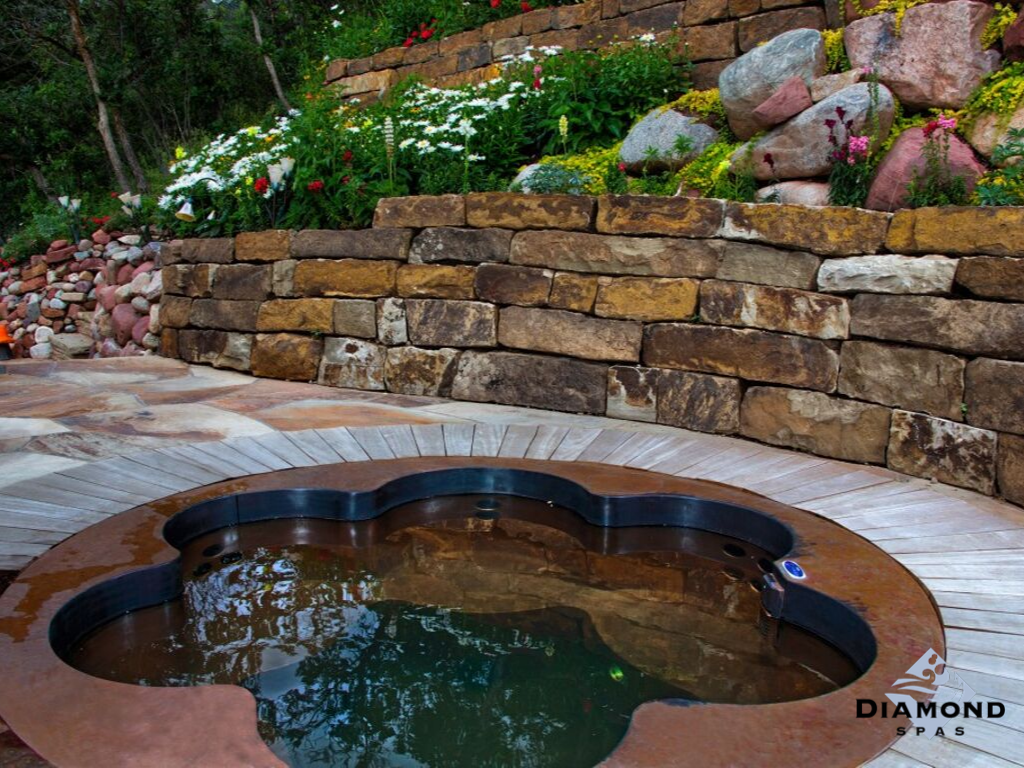Everyone knows that stepping into a bubbling hot tub and letting the warm water soothe tired muscles and nerves feels good. It’s also been well documented that the benefits of warm-water immersion extend far beyond recreational activities. This type of therapy has been popular in aquatic facilities and has strong research support when it comes to easing joint discomfort, promoting better sleep and muscle relaxation.
Current research takes a step beyond that and looks more closely at how spending time and exercising in warm and neutral water affects our bodies. From brain injuries and post-traumatic stress disorder to cognitive function and diabetes, a variety of conditions are being examined by researchers to find new approaches to therapy.
“The effects of aquatic immersion are profound, and impact virtually every body system,” said Dr. Bruce Becker, director of the National Aquatic & Sports Medicine Institute at Washington State University. His statement appears in the new flipbook Hot Water & Healthy Living Gen. 2.0 by the National Swimming Pool Foundation.
Dr. Becker’s research has been instrumental in understanding the crucial benefit of warm-water immersion – balancing the autonomic nervous system – an effect that seems to be at the core of a variety of benefits. The autonomic nervous system helps individuals adapt to changes in the environment and affects vital functions, such as heart rate, digestion and respiration. The sympathetic nervous system, which reacts to stress, and the parasympathetic nervous system, which promotes calm, ideally strive to be in balance. This is where a hot tub is important.
The study involved 16 college-age students and 16 adults between the ages of 45 and 64. The participants took turns sitting for 24 minutes in tubs, starting with cooler water, then after a 12-minute break on to neutral water of 94 degrees, and then after another 12-minute break on to warmer water of 100.8 degrees.
“You get a meaningful autonomic response in a period longer than ten minutes,” Becker said. “You’ll find that you’re more relaxed and get a longer duration of relaxation. The 100.8 temperature was chosen because that’s the highest people can comfortably tolerate.”
The team looked at heart rate variability and applied an algorithm to measure the reaction of the nervous system.
“What we found is that the sympathetic nervous system essentially deescalated during the warm water segment,” Becker said. “Cool water raised the sympathetic system activity, neutral registered at baseline and warm water deescalated it.”
Becker said that the finding was that the trend was the same for all subjects, even though the magnitude in the older cohort wasn’t quite the same as in the younger cohort. “All our subjects saw a drop in blood pressure and an increase in circulation,” he said.
He’s hoping to continue research in this area and learn more about the duration effect of the balance state and whether it would be affected if the sequence of water temperatures were changed. He’s also intrigued by the current cognitive performance and warm-water immersion studies.

PTSD AND TRAUMATIC BRAIN INJURY
At the National Intrepid Center of Excellence at Fort Belvoir, Virginia, Dr. Mary Wykle works with military personnel suffering from traumatic brain injuries and post-traumatic stress disorder to reduce pain and anxiety and improve balance. Her pilot study involves doing Ai Chi, a form of aquatic exercise, in a 90-degree pool for a series of up to 16 sessions.
“No two patients with brain injuries are alike,” said Wykle. “But what they all have in common is chronic pain, a lot of migraine headaches, anxiety and balance issues. The therapy involves performing soothing and calming movements while the autonomic nervous system is benefiting from a warm-water immersion. Wykle said, “As we work on balance, we hope we can slow down their dizziness, reduce their anxiety and improve cognition.”
Already the researcher is seeing promising results that include a drop in blood pressure and heart rate as well as lower points on the pain scale. “So many of our patients are in the fight or flight mode and we want them to be able to calm down,” she said.
The soothing effect of the warm-water immersion is crucial for this type of therapy because people in this group tend to struggle with the usual land mind-body techniques, such as yoga, tai chi and meditation. “You take someone who is very high strung and you ask them to sit calmly, it doesn’t work very well,” Wykle said.
COGNITIVE FUNCTION
There’s also a good chance that people may be smarter in water, according to Dr. Eadric Bressel, a professor and clinical research scientist in the Sports Medicine Program at Utah State University. His research focuses on understanding how water immersion helps in learning new information, critical decision making or even slows down age-related cognitive decline.
“This type of research was mainly done with astronauts in deep-water pools practicing skills they would use on a spacewalk,” Bressel said. “But performing operations at 5 meters below water surface is not applicable to people at an aquatic facility.”
Building on research from Japan that showed an increased blood flow in subjects immersed in chest-deep water, Bressel wanted to see if the same scenario would translate to performance change. His recent study was an auditory vigilance test, which measured how well participants could listen to a series of letters and retain how many times a particular letter was mentioned. The test was administered to a group on land and in chest-deep water at 82 degrees.
“Our hypothesis was that in water, an added challenge would be maintaining their balance and that doing two things at the same time would create more errors,” Bressel said. “That wasn’t the case. No matter what we threw at them, they performed better in water.”
The big trick behind the better result, according to Bressel, is the already mentioned calming effect that you don’t get with cooler water as it “allows you to be more relaxed and pay better attention.”
Bressel is hoping to use these findings in future studies of groups with greater cognitive challenges, such as re-learning skills after a stroke or after spinal cord injuries. It’s also possible that they can have a beneficial effect on working with age-related cognitive decline.

DIABETES
Diabetes is another area where immersion therapy seems to be beneficial. Considering that physical exercise is effective therapy for patients with type 2 diabetes mellitus, Dr. Hooper and his colleagues at McKee Medical Center in Loveland, Colo. decided to ask the question: Would the effects of partial immersion in a hot tub simulate the beneficial effects of exercise? The study involved eight patients sitting in a hot tub at an athletic facility with water up to their shoulders, for 30 minutes a day, six days a week, for three weeks. The temperature of the water in the tub ranged from 37.8 degrees C to 41.0 C. After 10 days, one patient reduced his dose of insulin by 18 percent to prevent hypoglycemic reactions, and the mean weight and fasting plasma glucose levels of the group decreased, as reported on Sept. 16, 1999 in the New England Journal of Medicine.
Dr. Hooper explicitly stated that the use of hot tubs for patients with diabetes requires further research and should be considered with caution, especially when it comes to the potential adverse effects on the cardiovascular system, infections, burns of the feet affected by neuropathy and risks when leaving the hot tub.
Building on the notion that exercise is vital for diabetes management, Dr. “Guy” Hornsby Jr., a professor at West Virginia University, focused his research also on patients with type-2 diabetes but in cooler water. The 32 participants exercised in the pool and a traditional land-based lab, and researchers measured the improvement of their fitness and psychological outlook.
“Usually people in this group don’t like to exercise,” Hornsby said. “What we do know is that people in the pool improved the same way as people on land. We haven’t thoroughly looked the psychological results of the study yet but my feeling is that people who exercised in the pool liked it better.” His response is supported by the fact that several years later, six of those who exercised in the pool continue to do so, compared to just one person from the land exercise group. He’s hoping that future research will bring even greater understanding to how to manage diabetes and improve the patients’ quality of life.
